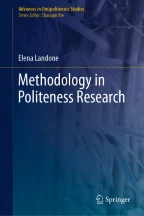Field Notes

The observation approach to collecting data can adopt more or less structured procedures. The observational log, checklists and scales of evaluation are structured forms because they provide preconceived categories that guide the observation. Logbooks, observation grids, recordings of anecdotal episodes to document a case study longitudinally are, on the other hand, considered to be semi-structured. Finally, field notes and diaries are considered open forms; in this chapter their characteristics are outlined and exemplified. They are the main tools for qualitative analysis, and their openness should guarantee a data driven process and hints for insightful reflection.
This is a preview of subscription content, log in via an institution to check access.
Access this chapter
Subscribe and save
Springer+ Basic
€32.70 /Month
- Get 10 units per month
- Download Article/Chapter or eBook
- 1 Unit = 1 Article or 1 Chapter
- Cancel anytime
Buy Now
Price includes VAT (France)
eBook EUR 93.08 Price includes VAT (France)
Softcover Book EUR 116.04 Price includes VAT (France)
Hardcover Book EUR 116.04 Price includes VAT (France)
Tax calculation will be finalised at checkout
Purchases are for personal use only
References
- Babai Shishavan, H. (2016). Refusals of invitations and offers in Persian: Genuine or ostensible? Journal of Politeness Research, 12(1), 55–93. Google Scholar
- Bieswanger, M. (2015). Variational pragmatics and responding to thanks—Revisited. Multilingua,34(4), 527–546. ArticleGoogle Scholar
- Culpeper, J., Marti, L., Mei, M., Nevala, M., & Schauer, G. (2010). Cross-cultural variation in the perception of impoliteness: A study of impoliteness events reported by students in England, China, Finland, Germany and Turkey. Intercultural Pragmatics,7(4), 597–624. ArticleGoogle Scholar
- Danesi, M. (1988). Neurological bimodality and theories of language teaching. SSLA,10, 13–31. Google Scholar
- Dörnyei, Z. (2007). Research methods in applied linguistics. Quantitative, qualitative and mixed methodologies. Oxford University Press. Google Scholar
- Golato, A. (2003). Studying compliment responses: A comparison of DCTs and recordings of naturally occuring talk. Applied Linguistics,24(1), 90–121. ArticleGoogle Scholar
- González-Cruz, M.-I. (2014). Request patterns by EFL Canarian Spanish students: Contrasting data by languages and research methods. Intercultural Pragmatics,11(4), 547–573. ArticleGoogle Scholar
- Huang, Y. (2018). Research methodology in classical and neo-Gricean pragmatics. In A. H. Jucker, K. P. Schneider, & W. Bublitz (Eds.), Methods in Pragmatics (pp. 155–183). Mouton De Gruyter. ChapterGoogle Scholar
- Kasper, G., & Dahl, M. (1991). Research methods in interlanguage pragmatics. Studies in Second Language Acquisition,13, 215–247. ArticleGoogle Scholar
- Márquez Reiter, R. (2020). How can ethnography contribute to understanding (im)politeness? Journal of Politeness Research, 17(1), 35–59. Google Scholar
- Marra, M., & Lazzaro-Salazar, M. (2018). Ethnographic methods in pragmatics. In A. H. Jucker, K. P. Schneider, & W. Bublitz (Ed.), Methods in pragmatics (pp. 343–366). Mouton De Gruyter. Google Scholar
- Mousavi, H. (2020). Terms of address and fictive kinship politeness in Lori. Journal of Politeness Research,6(2), 271–247. Google Scholar
- Nunan, D. (1992). Research methods in language learning. Cambridge University Press. Google Scholar
- Penny, C. (1989). Modality effects in delayed free recall and recognition: Visual is better than auditory. The Quarterly Journal of Experimental Psychology,41(3), 455–470. ArticleGoogle Scholar
- Puga Larraín, J. (2012). La observación participante en el estudio de la atenuación del castellano de Chile. In J. Escamilla Morales, & G. Henry Vega (Eds.), Miradas multidisciplinares a los fenómenos de cortesía y descortesía en el mundo hispánico (pp. 413–450). Universidad del Atlántico-Programa EDICE. Google Scholar
- Schmidt, R. (1990). The role of consciousness in second language learning. Applied Linguistics,11(2), 129–158. ArticleGoogle Scholar
- Schneider, K. P. (2018). Methods and ethics in data collection. In A. H. Jucker, K. P. Schneider, & W. Bublitz (Eds.), Methods in Pragmatics (pp. 37–93). Mouton De Gruyter. ChapterGoogle Scholar
- Sifianou, M. (2001). “Oh! How appropriate!” Compliments and politeness. In A. Bayraktaroglu & M. Sifianou (Eds.), Linguistic Politeness across Boundaries: The Case of Greek and Turkish (pp. 391–430). John Benjamins. Google Scholar
- Stubbs, M. (1987). Análisis del discurso. Análisis sociolingüístico del lenguaje natural. Alianza Editorial. Google Scholar
- Vanderstoep, S., & Deirdre, J. (2009). Research methods for everyday life. Blending qualitative and quantitative approaches. Jossey-Bass. Google Scholar
- Yin, R. (2018). Case study research and applications: Design and methods. Sage. Google Scholar
- Yuan, Y. (2001). An inquiry into empirical pragmatics data-gathering methods: Written DCTs, oral DCTs, field notes, and natural conversations. Journal of Pragmatics,33(2), 271–292. ArticleGoogle Scholar
Author information
Authors and Affiliations
- Dipartimento di Lingue, Letterature, Culture e Mediazioni, Università degli Studi di Milano, Milan, Italy Elena Landone
- Elena Landone
You can also search for this author in PubMed Google Scholar
Corresponding author
Rights and permissions
Copyright information
© 2022 The Author(s), under exclusive license to Springer Nature Switzerland AG
About this chapter
Cite this chapter
Landone, E. (2022). Field Notes. In: Methodology in Politeness Research. Advances in (Im)politeness Studies. Springer, Cham. https://doi.org/10.1007/978-3-031-09161-2_17
Download citation
- DOI : https://doi.org/10.1007/978-3-031-09161-2_17
- Published : 18 August 2022
- Publisher Name : Springer, Cham
- Print ISBN : 978-3-031-09160-5
- Online ISBN : 978-3-031-09161-2
- eBook Packages : Social SciencesSocial Sciences (R0)
Share this chapter
Anyone you share the following link with will be able to read this content:
Get shareable link
Sorry, a shareable link is not currently available for this article.
Copy to clipboard
Provided by the Springer Nature SharedIt content-sharing initiative

